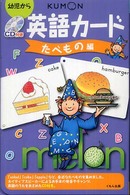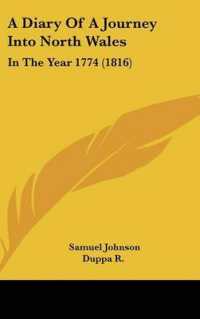Full Description
The volume deals with a variety of theatrical activities of refugees from Nazi Germany in Britain and their impact, approached from a British standpoint rather than that of the emigres. The historical account of the cross-fertilization between the British theatre and film industry and the aesthetic principles and artistic traditions brought from Central Europe are discussed as is the wider philosophical problems inherent in any cultural transfer from one country to another. The position of the theatre, opera, ballet and film at this time are all covered.
Contents
Great Britain and the emigration from Nazi Germany - an historical overview, Gerhard Hirschfeld; producing art in exile - perspectives on the German refugees' creative activities in Great Britain, Gunter Berghaus; German theatre and cabaret in London 1939-45, Hugh Rorrison; "Das Hubscheste sind die Lieder" - Allan Gray's contribution to the FDKB-Revue "Mr Gulliver goes to School", Jorg Thunecke; "they came to a country" - German theatre practitioners in exile in Great Britain 1938-45, Alan Clarke; the dramatist as exile - Ernst Toller and the English theatre, Nicholas A.Furness; the British feature film as a European concern - Britain and the emigre film maker 1933-1945, Kevin Gough-Yates; Rudolf Laban and Kurt Jooss in exile - their relationship and diverse influence on dance in Britain, Valerie Preston-Dunlop; Carl Ebert, Glyndebourne and the regeneration of English opera, Erik Levi; theatre behind barbed wire - German refugee theatre in British internment, Alan Clarke. Appendices: Thespis behind the wire, or entertainment in internment - a personal recollection, George W.Brandt; TdC 186 - a repertory theatre in a POW camp, Carl Weber.








